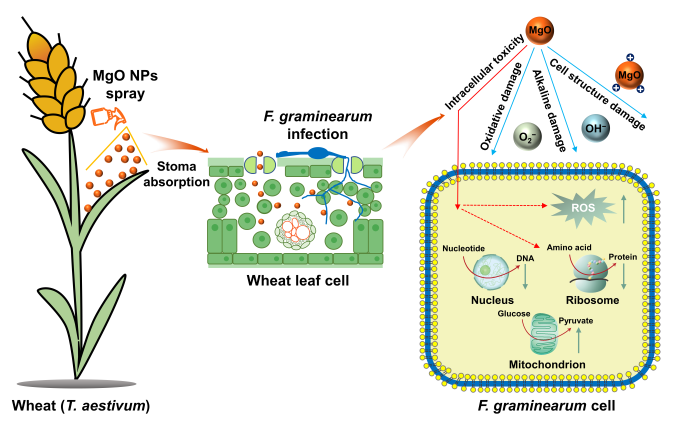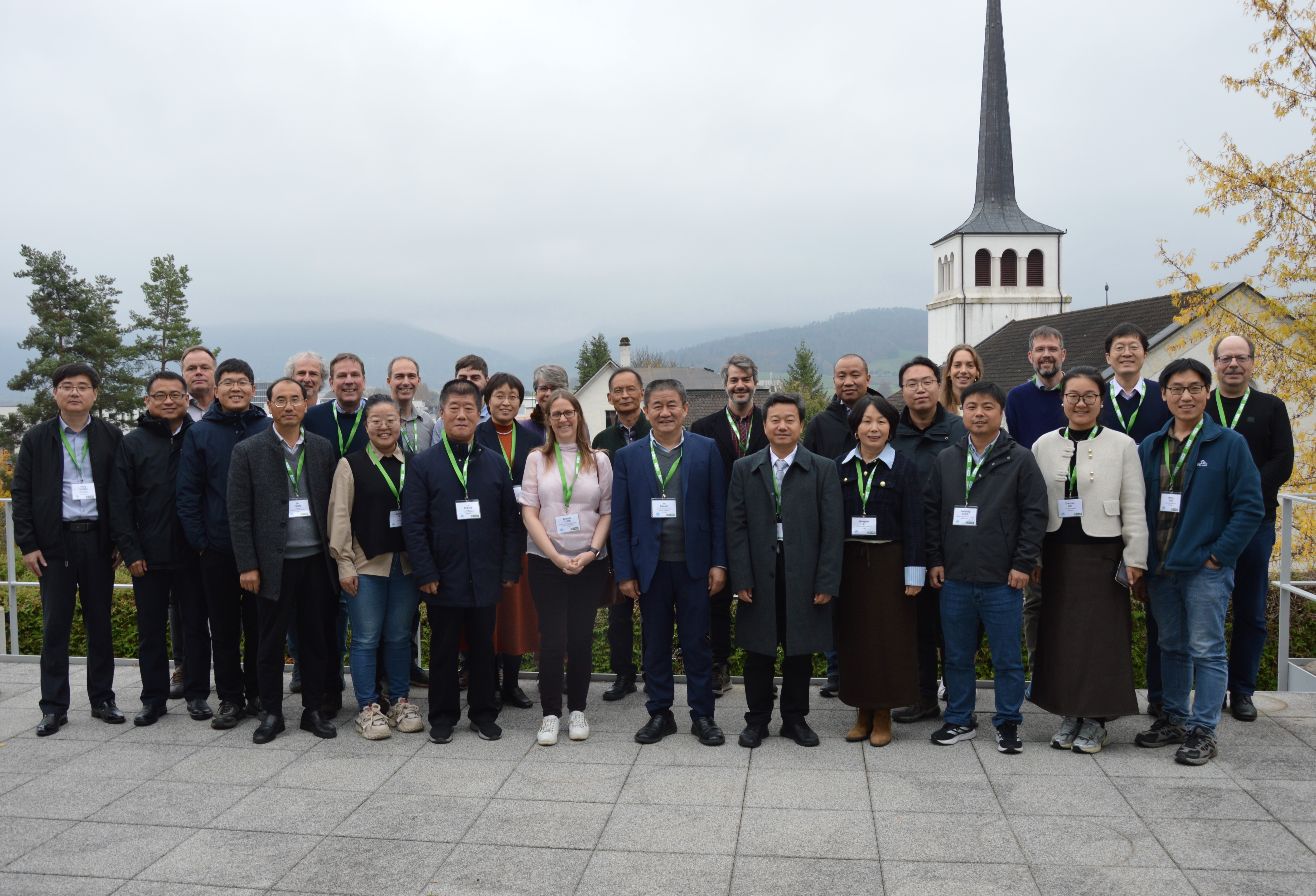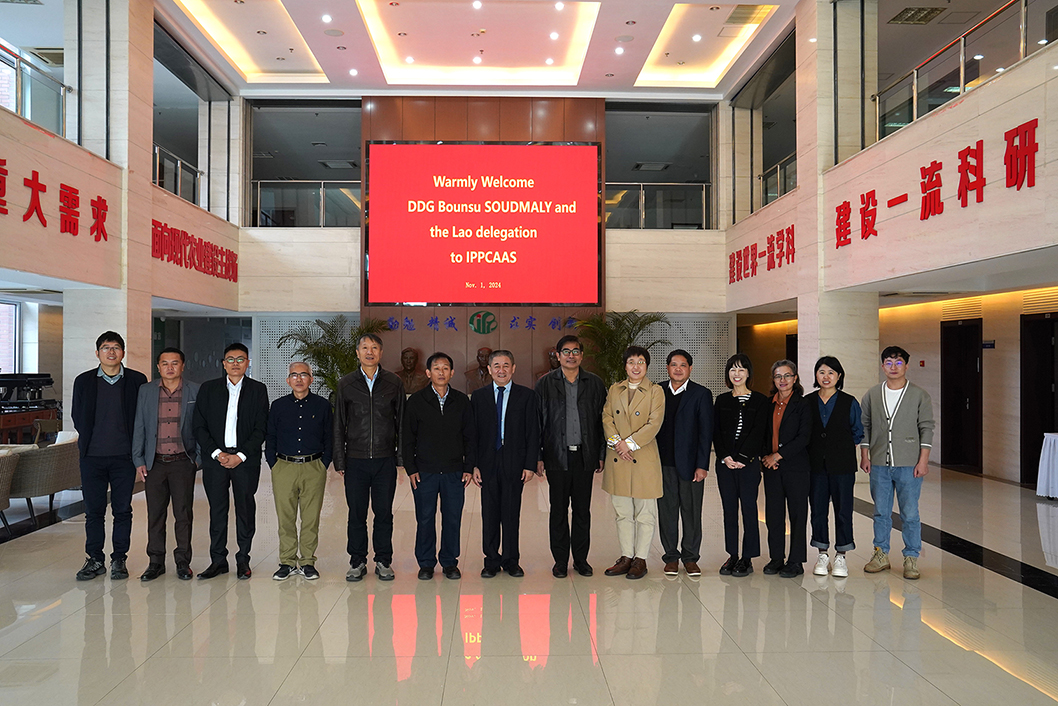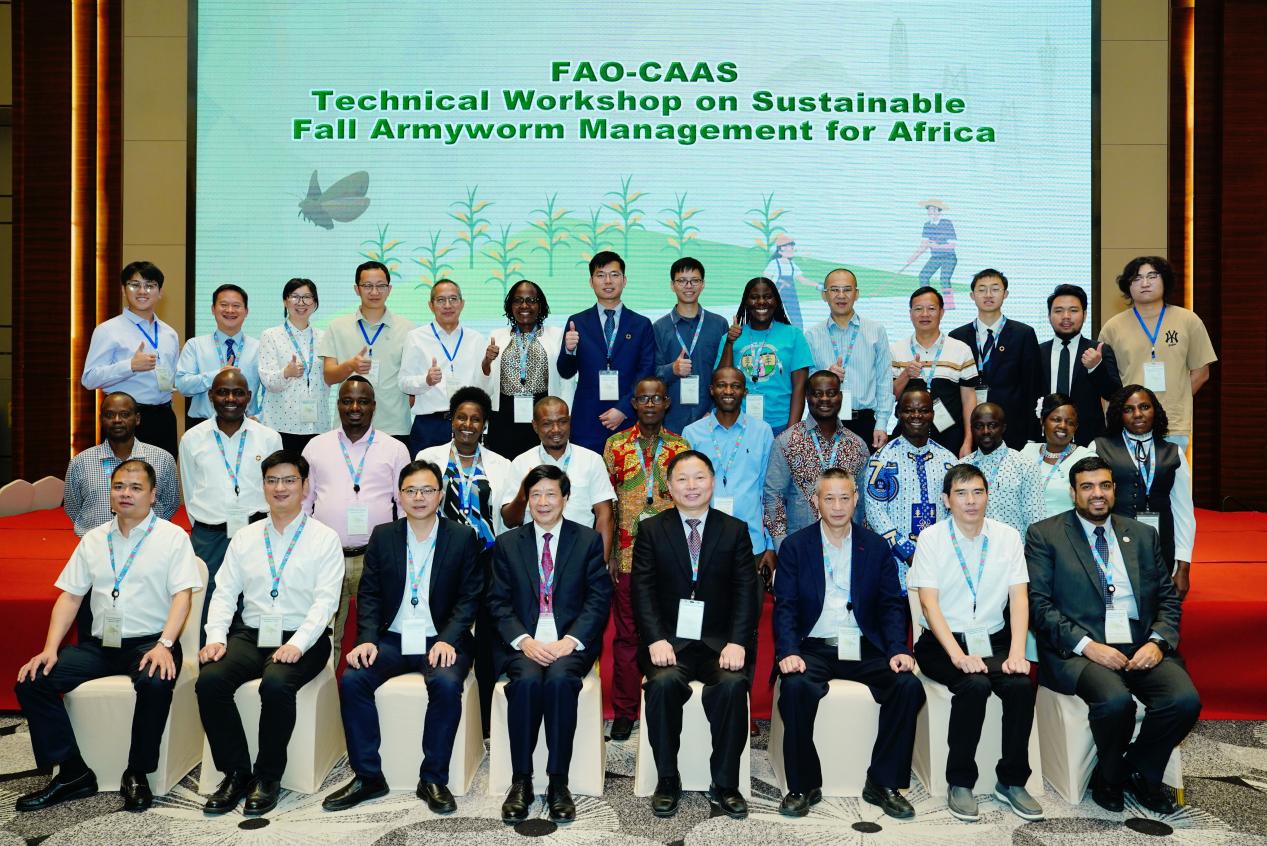IPPCAAS Provides a New Nanopartner Strategy for Controlling Wheat Fusarium Head Blight and Deoxynivalenol Production
Recently, the Innovation Team for Risk control of pesticide application at the Institute of Plant Protection, Chinese Academy of Agricultural Sciences (IPPCAAS), published a research paper titled “Efficient Control of Fusarium Head Blight and Reduction of Deoxynivalenol Accumulation by a Novel Nanopartner-Based Strategy” in the high-impact journal Environmental Science & Technology. The study discovered that magnesium oxide nanoparticles (MgO NPs) effectively inhibit Fusarium graminearum growth and deoxynivalenol (DON) production, and exhibit synergistic effects when combined with commonly used fungicides such as carbendazim. The research focuses on elucidating the new antimicrobial mechanism of MgO NPs against F. graminearum , offering a new strategy for the scientific control of wheat Fusarium head blight (FHB) and the reduction of DON contamination.
FHB, caused by F. graminearum and other Fusarium species, is a global wheat disease that results in an annual loss of up to 553,400 tons in wheat yield. Chemical control remains the primary method for managing FHB, but the long-term, single, and excessive use of chemical fungicides has led to issues such as frequent field resistance and the accumulation of DON in infected grains. Developing new partner for fungicides can provide novel means for effectively controlling FHB and DON contamination. Due to their superior small-size effects, many metal nanoparticles have been found to exhibit antimicrobial activity and are used as new nanofungicides to control plant diseases.
This study, by comparing the bioassay experiment results of ten common bioactive nanoparticles (such as ZnO NPs and TiO2 NPs), found that MgO NPs had the best control effect against FHB (EC50 = 105.2 μg/mL). Further investigations explored the antimicrobial mechanism of MgO NPs against F. graminearum .
The paper was completed by IPPCAAS, with Dr. Ma Dicheng as the first author and professor Li Yuanbo as the corresponding author. This research was funded by the Postdoctoral Fellowship Program of China Postdoctoral Science Foundation (Grade C, No. GZC20233067) and the Innovation Project of the Chinese Academy of Agricultural Sciences.

-
 Prof. Lise Korsten, President of the African Academy of Sciences President visited IPPCAAS
Prof. Lise Korsten, President of the African Academy of Sciences President visited IPPCAAS -
 China-CABI Project Development Workshop Held in Delémont, Switzerland
China-CABI Project Development Workshop Held in Delémont, Switzerland -
 The Lao PDR-China Joint Laboratory for Plant Protection holds technical seminar at IPPCAAS
The Lao PDR-China Joint Laboratory for Plant Protection holds technical seminar at IPPCAAS -
 IPPCAAS Successfully Organized the FAO-CAAS Technical Workshop on Sustainable Fall Armyworm Management for Africa in Guangdong
IPPCAAS Successfully Organized the FAO-CAAS Technical Workshop on Sustainable Fall Armyworm Management for Africa in Guangdong
